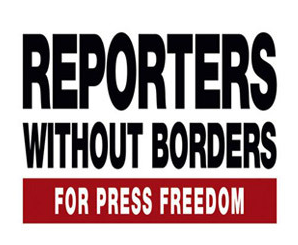While Guyana has moved up four places to 51 of the 180 listed in the latest World Press Freedom Index, the assessment by Reporters Without Borders (RSF) maintains that while the country’s constitution guarantees free speech and the right to information, officials often use laws to silence “opposition” journalists.
The legislation used by officials, according to the report, include defamation law s, which provide for fines and up to two years in jail.
The conclusions were similar to those made by RSF last year, when the country moved from 60 to 55.
At that time, the Guyana Press Association (GPA) had said there were still “significant hurdles to be crossed before Guyanese can feel that an improved ranking really matters.”
 Jamaica, Trinidad and Tobago and the Dominican Republic were the Caribbean countries which ranked above Guyana, while Norway for the third year is at the top of the index and Turkmenistan is ranked last.
Jamaica, Trinidad and Tobago and the Dominican Republic were the Caribbean countries which ranked above Guyana, while Norway for the third year is at the top of the index and Turkmenistan is ranked last.
Meanwhile, the RSF assessment noted that a cybercrime bill that was passed into law in July, 2018 in Guyana took into account amendments it proposed regarding provisions that could have posed a threat to press freedom if used to penalise journalists for publishing reports deemed critical of the government or that are based on information from confidential sources.
“However the bill remains imperfect,” it said.
Further, it was pointed out that the members of the media regulatory authority are appointed directly by the president. “This restricts the freedom of certain media outlets, which are denied licenses,” it added.
And recent attempts to improve regulation of the broadcast industry involved no consultation with any broadcasters, according to the report.
It also said that journalists are still subjected to harassment that takes the form of prosecutions, suspensions, and intimidation.
Globally, RSF noted, the 2019 World Press Freedom Index “shows how hatred of journalists has degenerated into violence, contributing to an increase in fear.” It was noted that the number of countries regarded as safe, where journalists can work in complete security, continues to decline, while authoritarian regimes continue to tighten their grip on the media.
While Norway is ranked at the top for the third year running, Finland (up two places) has taken second place from Sweden, which fell one place due to an increase in cyber-harassment. In Africa, the rankings of Ethiopia (up 40 at 110th) and Gambia (up 30 at 92nd) have significantly improved from last year’s Index.
But the report said that many authoritarian regimes have fallen in the Index. They include Venezuela (down five at 148th), where journalists have been the victims of arrests and violence by security forces, and Russia (down one at 149th), where the Kremlin has used arrests, arbitrary searches and draconian laws to step up the pressure on independent media and the Internet.
At the bottom of the Index, both Vietnam (176th) and China (177th) have fallen one place, Eritrea (up one place at 178th) is third from last, despite making peace with its neighbour, Ethiopia, and Turkmenistan (down two places at 180th) is now last, replacing North Korea (up one at 179th).
According to RSF, the degree of freedom available to journalists in the 180 countries is determined by pooling the responses of experts to a questionnaire it devises. “This qualitative analysis is combined with quantitative data on abuses and acts of violence against journalists during the period evaluated,” the press body explained.
It further revealed that the criteria evaluated in the questionnaire are pluralism, media independence, media environment and self-censorship, legislative framework, transparency, and the quality of the infrastructure that supports the production of news and information.




